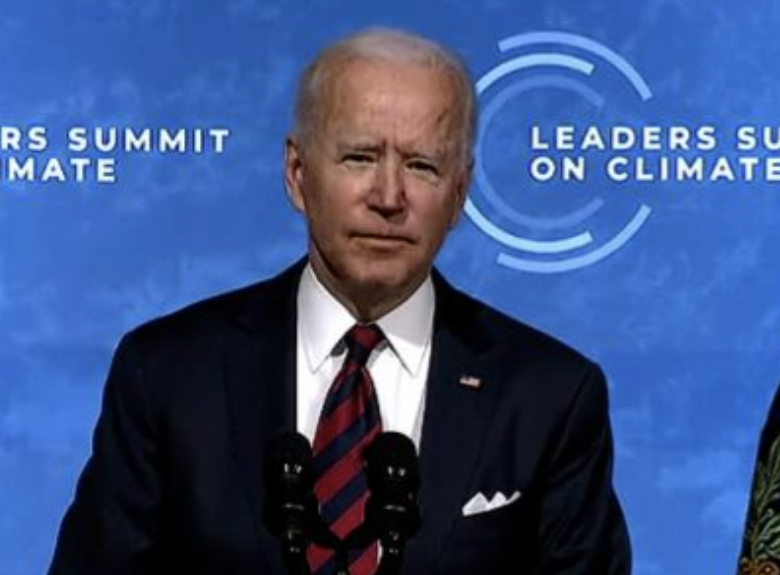Biden Adamant, PA Dems Silent on Windfall Tax Targeting Energy Companies

With the 1980 election approaching, a desperate President Jimmy Carter — underwater in the polls — signed into law the Crude Oil Windfall Profits Tax Act. It put a 70 percent tax on the “excess profits” from selling a barrel of oil for more than $12.81 (about $46 today). His goal was to bring down record gas and energy prices.
It didn’t work.
On Monday President Joe Biden — who was serving his second term in the U.S. Senate in 1980 — turned to the same strategy in similar circumstances. He urged Congress to pass a bill taxing oil and gas producers for what he calls “windfall profits.”
“Their profits are a windfall of war, the windfall from the brutal conflict that’s ravaging Ukraine and hurting tens of millions of people around the globe,” Biden said.
It is an idea many economists say is counterproductive to the goal of lowering consumer costs.
Economist Larry Summers served in both the Clinton and Obama administrations.
“I’m not sure (I) understand the argument for a windfall profits tax on energy companies,” he said via Twitter. “If you reduce profitability, you will discourage investment which is the opposite of our objective.”
Not surprisingly, the energy industry opposes the idea.
“Rather than taking credit for price declines and shifting blame for price increases, the Biden administration should get serious about addressing the supply and demand imbalance that has caused higher gas prices and created long-term energy challenges,” American Petroleum Institute president and CEO Mike Sommers said in a statement. “Oil companies do not set prices—global commodities markets do. Increasing taxes on American energy discourages investment in new production, which is the exact opposite of what is needed. American families and businesses are looking to lawmakers for solutions, not campaign rhetoric.”
And then there is the political question: How can you say you’re trying to lower the price of gas and heating oil when you are raising taxes on the companies who produce it?
Pennsylvania Democrats appear to have their doubts. None of the candidates contacted by Delaware Valley Journal about Biden’s proposal would respond to questions. That includes Lt. Gov. John Fetterman and Reps. Chrissy Houlahan (D-Chester/Berks), Mary Gay Scanlon (Delaware/Philadelphia), Madeleine Dean (D-Montgomery/Berks).
But Fetterman has called out oil companies in the past, accusing them of “gouging” consumers and suggesting legal restrictions on how they invest their profits.
“Big Oil just made another round of record profits by gouging Americans at the gas pump,” Fetterman said last week. “And instead of investing that money in American energy production and lowering costs for families, companies are paying themselves through stock buybacks and keeping prices high to line their own pockets. This practice should be severely restricted.”
“Gas still costs almost $4 a gallon in Pennsylvania. We need lower prices now, and we need to take action,” Fetterman said.
Dr. Mehmet Oz, Fetterman’s GOP opponent, did not respond to a request for comment.
Republican Guy Ciarrocchi, who is challenging Houlahan, said attempting to regulate and restrict your way to lower energy costs makes no sense.
“Congresswoman Houlahan and her allies have allowed Biden to go down this dangerous path of angry rhetoric, higher taxes, and strangling American energy production,” said Republican Guy Ciarrocchi. “Thankfully, the answer is energy right in our grasp—in Alaska, the Dakotas, Canada, the Gulf, and even here in Pennsylvania. We can increase supply, lower prices, create jobs, improve the environment and make us safe from tyrants and dictators.
“Biden and Houlahan won’t do it. But I’m going to be part of a Republican Congress that will force (Biden) into reality,” Ciarrocchi added.
Analysis of Carter’s 1980 windfall profits tax found that it decreased domestic energy production and increased reliance on imported oil. According to the Congressional Research Service, the tax reduced domestic production by as much as 8 percent from 1980 to 1988 when it was repealed in part because “it made the United States more dependent on foreign oil.”
Please follow DVJournal on social media: Twitter@DVJournal or Facebook.com/DelawareValleyJournal


